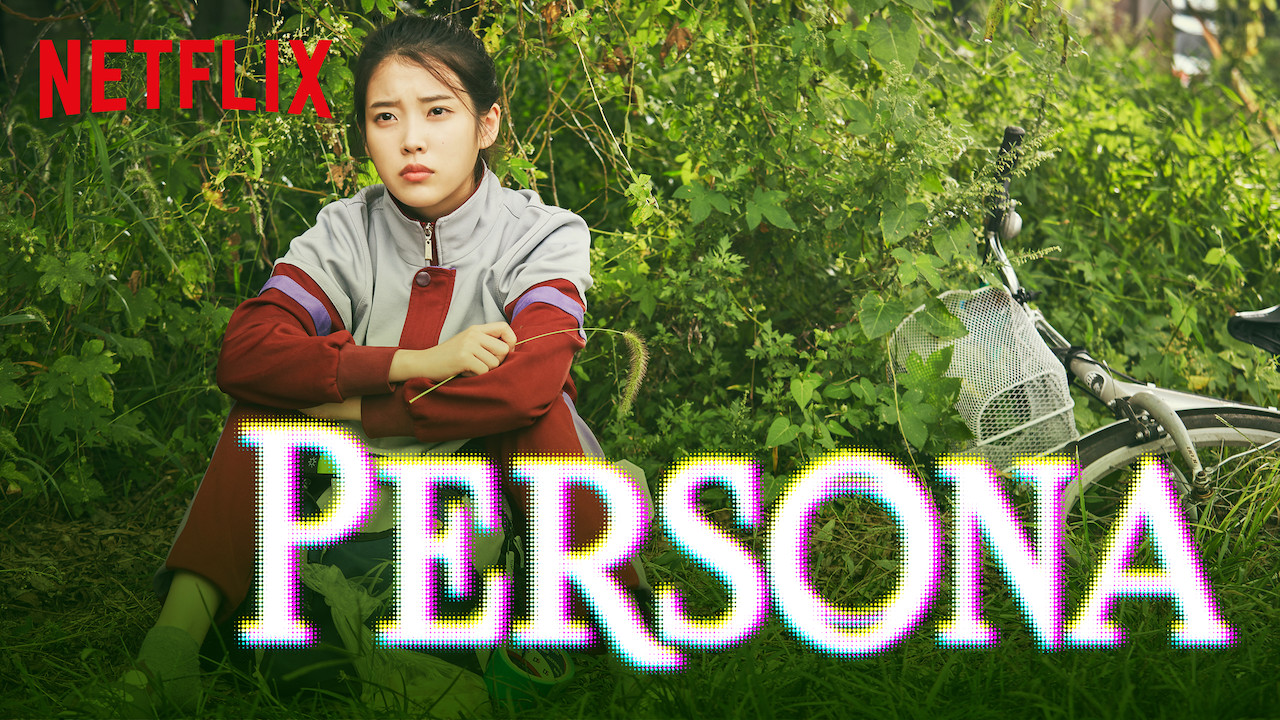Known as the nation’s sweetheart, Lee Ji-eun (Ji-eun), also known as IU, made her film debut on Netflix in the film anthology entitled “PERSONA”. The anthology consists of four films directed by four different directors, with each director highlighting a certain aspect of Ji-eun in order to give prominence to issues prevalent in our society.
The first film, “Love Set”,revolves around the theme of power amongst women. In this film, Ji-eun plays the role of a young daughter — named IU — who is against the marriage between her father and his fiancee (Bae Doona), who is also her English teacher. Doona challenges IU to a tennis match, stating that if IU wins, the marriage will be called off, and if Doona wins, IU will have to accept the fact that the marriage will happen.
Director Lee Kyoung-Mi’s works are typically psychological thrillers. “Love Set” deviates from that genre, and instead explores the emotions of the two women. This is done through the underlying sexual tension between IU and Doona, which pushes this film closer to erotica. There are a series of close up shots throughout the tennis match. These consist of shots of the two women’s flushed skins and the swishing of their skirts. There was no sound throughout the match other than the grunts that sound almost sexual from both women,
At the end Doona is seen caressing IU’s thumb when shaking her hand, implying that two may have a deeper connection even before Doona started seeing IU’s father. Such a match was quite uncomfortable to watch, and it was confusing as there was little to no focus on the stakes set for the match. In fact, the men in this film become irrelevant throughout the entire match.
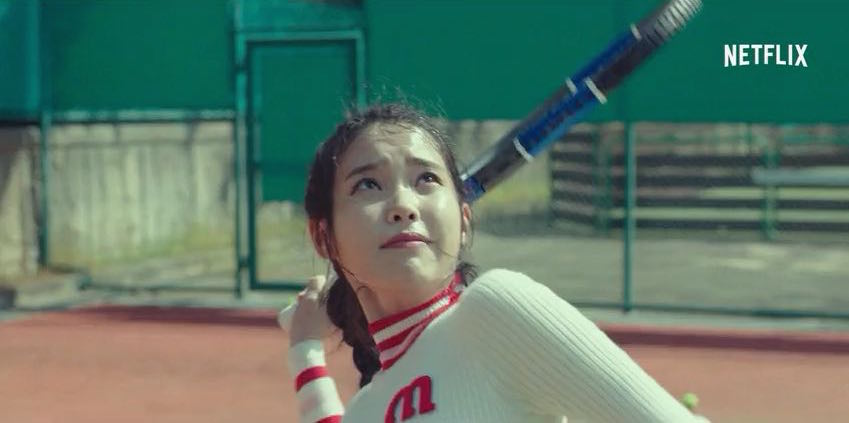
This ties in with the theme of the film: power amongst women. As opposed to fighting for IU’s father’s love, the women are actually fighting for dominance over the other. No glances were spared to the two men sitting on the bench, and even the comments made by the father were easily discarded as it held no weight or meaning to the overall story. At the end of the film, despite the fact that Doona had won she gives IU the win, suggesting that she gives up the power she has over IU. In response, IU is dissatisfied and is seen to start a new match with Doona, concluding “Love Set”.
Placing “Love Set” as the opening to “PERSONA” has its pros and cons. On one hand, it piques the audience’s interest as to what the other three films would be like and its comedic moments does set a light-hearted atmosphere. However, due to the complexity and confusion that comes with the tennis match, it has a high chance of putting off the audience from watching the remaining films. It creates the idea that the rest of the films will be just as confusing and weird as “Love Set” and those who are uninterested may not want to carry on with the series.
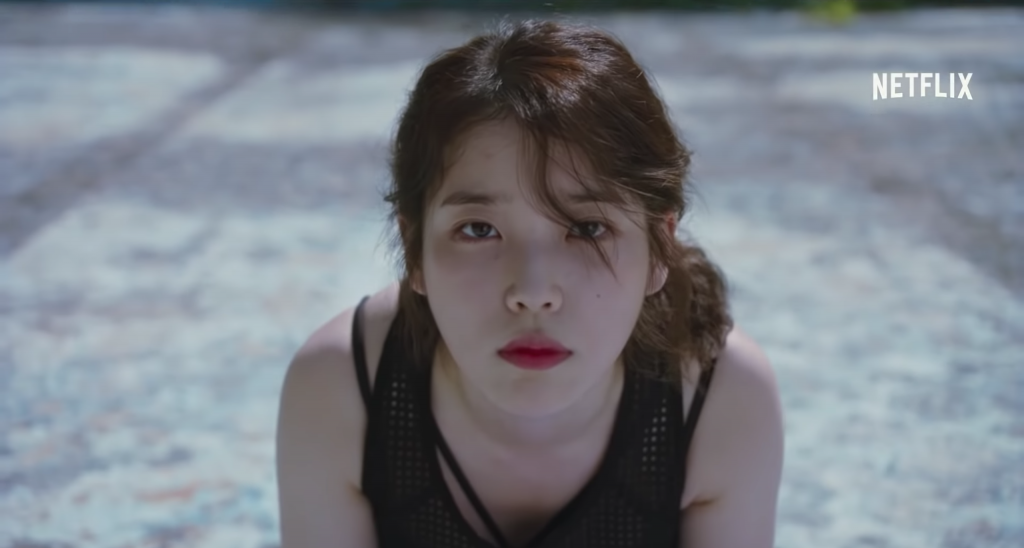
In “Collector”, Ji-eun plays a sultry seductress named Eun who simply wants to be free and have fun. It is revealed at the end that she collects the hearts of men and subject them to a life of misery. “Collector” was directed by Yim Pil-Sung (Yim), and he focuses on horror and fantasy, where his works are typically a retelling of fairytales or folktales. In an interview, Yim disclosed that his inspiration for “Collector” came from Ji-eun’s song “Jam Jam”, a song about a woman who just wants to have fun and forget about the expectations of what true love is supposed to be.
Eun is naturally playful, but it is clear that she does not care for true love and its meaning at the end of the film. Eun’s characterisation also alludes to the Korean mythological creature Kumiho— a nine-tailed fox who can freely transform into a beautiful woman often set out to seduce men and eat either their liver or heart. This allusion is clear at the very end of the film, where there is a shot of a few jars of hearts in Eun’s bag. The hearts indicate that Eun is in control of the relationships that she gets into, despite playing a passive role in them, which leads to the main theme of the film: female sexuality and empowerment.
Throughout the film, we see Baek Jeong-u — a man who left his fiancee to be with Eun — constantly trapped in a room filled with self-doubt as he attempts to unravel the mystery that is Eun. In the beginning, it was Jeong-u who was attracted to Eun because of the allure of her ambiguity. He takes it upon himself to try and appease Eun by talking about the value of women and their importance, for they bring life and beauty to the world. He is also deeply affected by her responses while she rarely reacts to his feelings, even sneaking off to kiss another man whilst pretending to go to the bathroom. Despite this, Jeong-u is still attracted to her, and this highlights the amount of power Eun has over Jeong-u in spite of her infidelity.
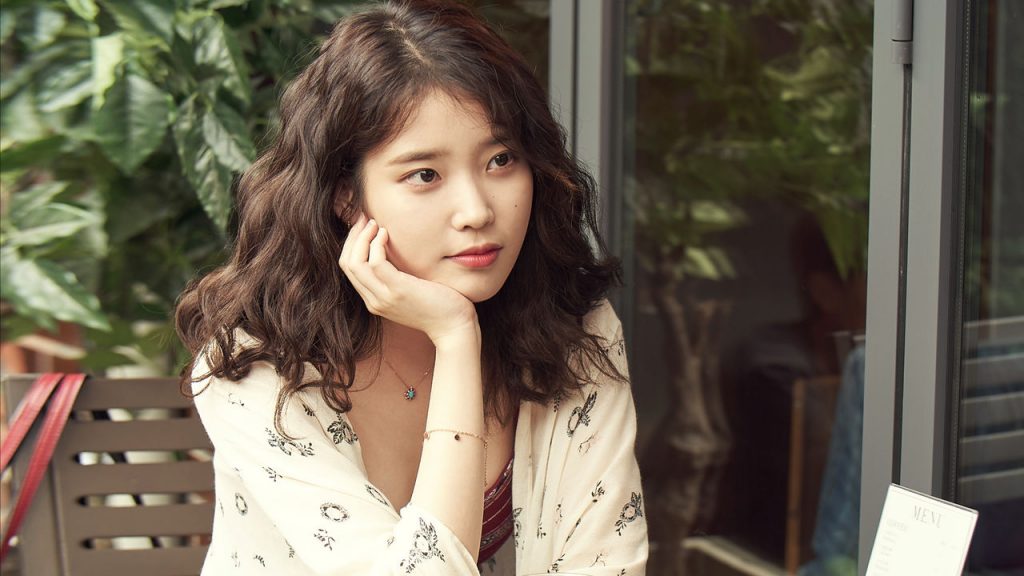
Eun uses her sexuality to her advantage, sticking around with Jeong-u just so he is satisfied enough to give her his heart at the very end. When she questions Jeong-u about his love for her, she asks “What is love?”, going as far as to challenge him by saying, “Would you take your heart out and give it to me? But you can’t, can you?”. Such words strike a chord within Jeong-u, who does not hesitate to literally rip his heart out and give it to her. The fact that the men are so willing to give Eun their hearts illustrates the overwhelming power she has over them. Yet she is merciless and cold, asking “Baek… What’s your name again?” when writing his name on the jar. This indicates that these men mean nothing but a collection to Eun, and that she does not have a deep emotional investment like the men do towards her.
The line “I’ll salt [the heart] and preserve it to ensure it doesn’t rot” is a reference to “Jam Jam”’s “I’ll keep it pickled // So it won’t rot, for a long time”. The line delivery add to Eun’s indifference to the men’s love, thus placing her in a position of higher power. As society progresses and strives for gender equality, female empowerment has also been on the rise. “Collector” shows how women can also be manipulative and in control of situations. It is reminiscent of Angela Carter’s collection of short stories entitled “The Bloody Chamber”. Both “Collector” and “The Bloody Chamber” are retellings of fairytales and folktales with a twist that highlights female sexuality and empowerment, and both stories have depicted a different side to women that our society naturally represses due to gender norms and expectations.
In “Kiss Burn”, Ji-eun plays a mischievous teenager named Han-na, who helps her friend Hye-bok take revenge on Hye-bok’s father. Despite their failed attempts, Han-na and Hye-bok’s friendship continues to strengthen. Following her previous works, Director Jeon Go-Woon, places emphasis on youths in relation to society, focusing on youth rebellion and oppression. Out of all the films, “Kiss Burn” is the most light-hearted in mood and atmosphere. Yet this does not take away from the message of the film, but instead highlights the issues of rebellion and oppression.
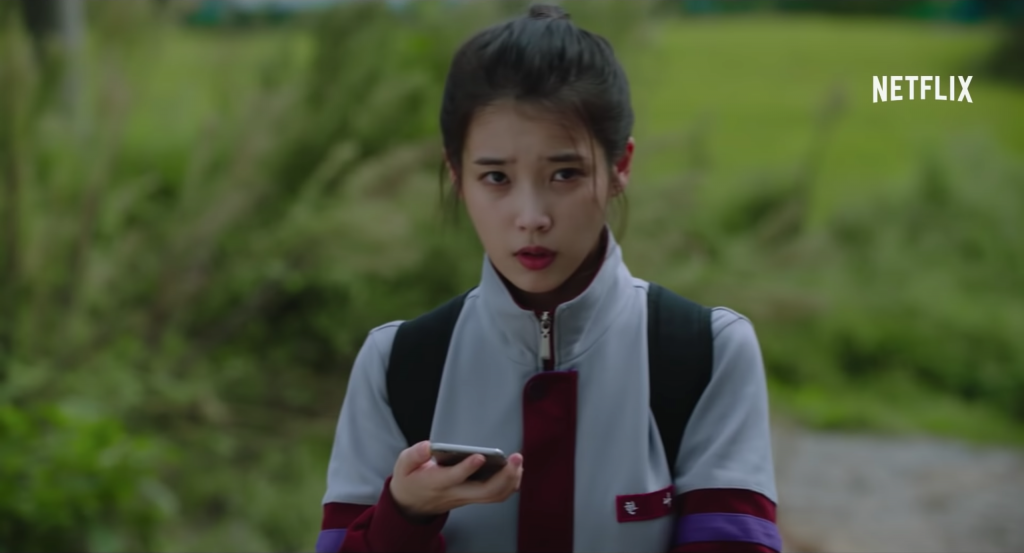
The main source of oppression is reflected in Hye-bok’s father, who cuts Hye-bok’s hair into a haphazard manner as punishment for receiving multiple hickies from a boy she barely knows. He is implied to be restricting. He stops Han-na from visiting Hye-bok, and controls Hye-bok’s actions. Her father’s actions are representative of the older generation’s disapproval of the youth’s wild and reckless behaviour, and they restrict the youths’ actions by imposing rules and punishments.
In response to oppression, Han-na encourages rebellion by knocking on the windows of Hye-bok’s house despite being turned away by her father,going as far as staying outside Hye-bok’s house till late at night when Hye-bok’s father finally leaves for work. Her determination depicts her loyalty and care for Hye-bok, and this silent rebellion serves to strengthen her friendship with Hye-bok. The two girls attempt to rebel by pouring wax on the floor to make it slippery, as well as messing with Hye-bok’s father’s chair. These actions are reflective of the childishness and innocence of the youth, where they are easily amused and satisfied with the smallest mishap that could happen to the older generation, relishing in the simplest of mischief. Of course, Han-na and Hye-bok fail repeatedly, but it is through these scenes where we see Han-na’s affection towards Hye-bok, and Hye-bok’s admiration for Han-na.
The main act of rebellion is when Hye-bok tries smoking. However, she throws the cigarette away out of fear upon seeing car lights approaching her house. This suggests that despite Hye-bok’s want to rebel, she is still restrained by the oppressive rules set upon her, and thus she is unable to properly rebel against her father. Furthermore, the cigarette she throws away starts a fire in the chicken coop, which leads to a chicken escaping the coop with its tail on fire. The chicken is the cause of the forest fire that occurs at the end of the film, to which Han-na and Hye-bok are completely unaware about as they leave for the beach. This indicates how rebellion affects society as a whole and that youths neglect the bigger picture for self-interest. It becomes incredibly ironic when Hye-bok reveals that her father’s job is to watch out for forest fires, when she is oblivious to the forest fire that she indirectly caused.
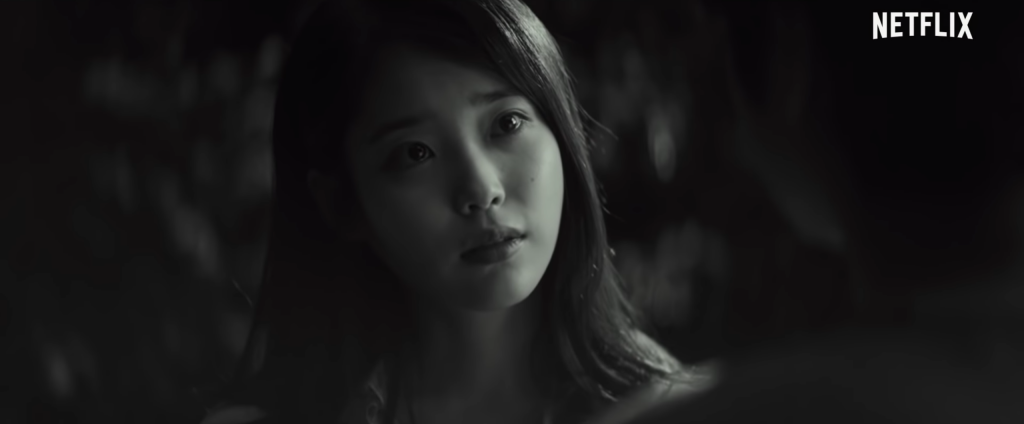
In the final film, “Walking at Night”, Ji-eun takes on the role of a deceased woman who visits her former boyfriend in his dream. The couple walks around while discussing their relationship, and their thoughts on love, life, death and impermanence. Director Kim Jong-Kwan mainly focuses on melodramatic films which are designed to appeal strongly to the emotions, and they usually take precedence over detailed characterisation, and in “Walking at Night”, he did just that. He focuses on the words the characters are saying rather than fully developing a character to the tiniest of detail. The film discusses two heavy topics in particular– depression and impermanence.
Ji-eun’s character admits to committing suicide due to loneliness that seemed “endless”, explaining the difference between being alone and feeling lonely. She goes on to mention that despite never feeling lonely when she was with her boyfriend, it was due to the overwhelming amount of loneliness she felt with others that eventually killed her. This is reflective of Korea’s increasing suicide rate over the years, where people with depression end up committing suicide as they feel lonely, or rather they think that no one actually cares about them. It also reminds us that while one person can help, that one person can not always deflect the attacks of many others.
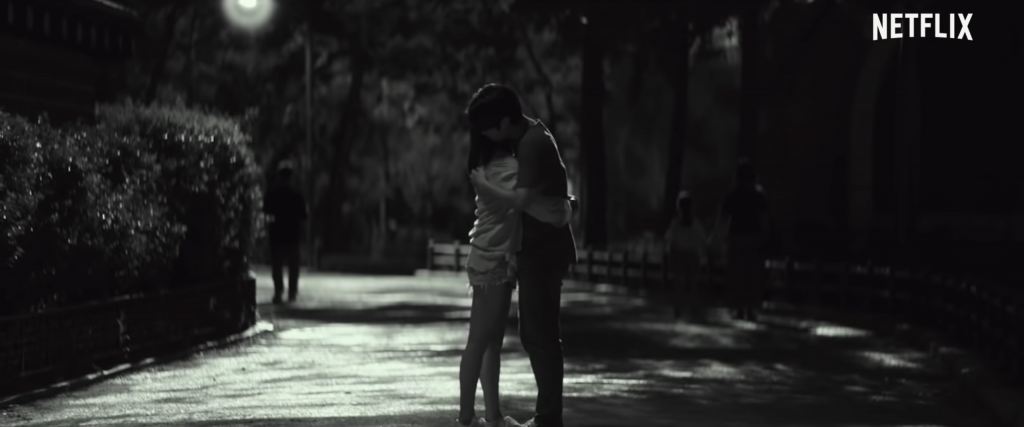
Depression is also reflected in the boyfriend, who is seen to be on the verge of tears every time he is reminded of her suffering. At the beginning of the film, he immediately breaks down into tears when he remembers that his girlfriend has passed on. Although he handles his own grieving well enough, he is clearly still affected by her death.When he learns about the reason as to why she passed, he is determined to remember the reason so that it does not become a fleeting memory.
This leads to impermanence, another theme of the film. The couple constantly questions whether life has any meaning when there is no certainty. Life, dreams, and death are fleeting, for they occur but are not remembered once passed. This is emphasised through the use of lighting throughout the film. Whenever the couple broaches an uncomfortable topic, they are covered by the shadows, but when they relive happier parts of their relationship, the light shines upon them,. Yet the lighting is constantly changing around them, suggesting that these thoughts and memories are brief. The transient memories that are depicted through the lighting further emphasises on the impermanence of life and the need to remain relevant by making every moment count. “Walking at Night” proves to be the best choice amongst the four films to close off this anthology, for it provokes the audience to reflect upon their actions and the different aspects of themselves which they either show to or hide from the world, tying with the name of the anthology, “PERSONA”.
In “PERSONA”, all four films managed to accentuate the different aspects of Ji-eun. While we all know and love Ji-eun as IU, “PERSONA” draws focus to sides of Ji-eun that we rarely notice. We typically see Ji-eun taking on a quirky and bubbly persona but “PERSONA” highlights aspects such as her mischief, defiance, intelligence and determination. “PERSONA” was definitely a breath of fresh air for UAENAs, and we hope to see Ji-eun uncover more aspects of her personality in both her music and films in the near future. Even for regular audiences, “PERSONA” strives to educate and spread awareness of issues prevalent in our society, and it is definitely worth watching for its eccentricity.
(YouTube [1] [2] [3], The Supernatural Fox Sisters, Genius Lyrics, AMC Filmsite, VOA News. Images via YouTube [1], Netflix [1] [2])
